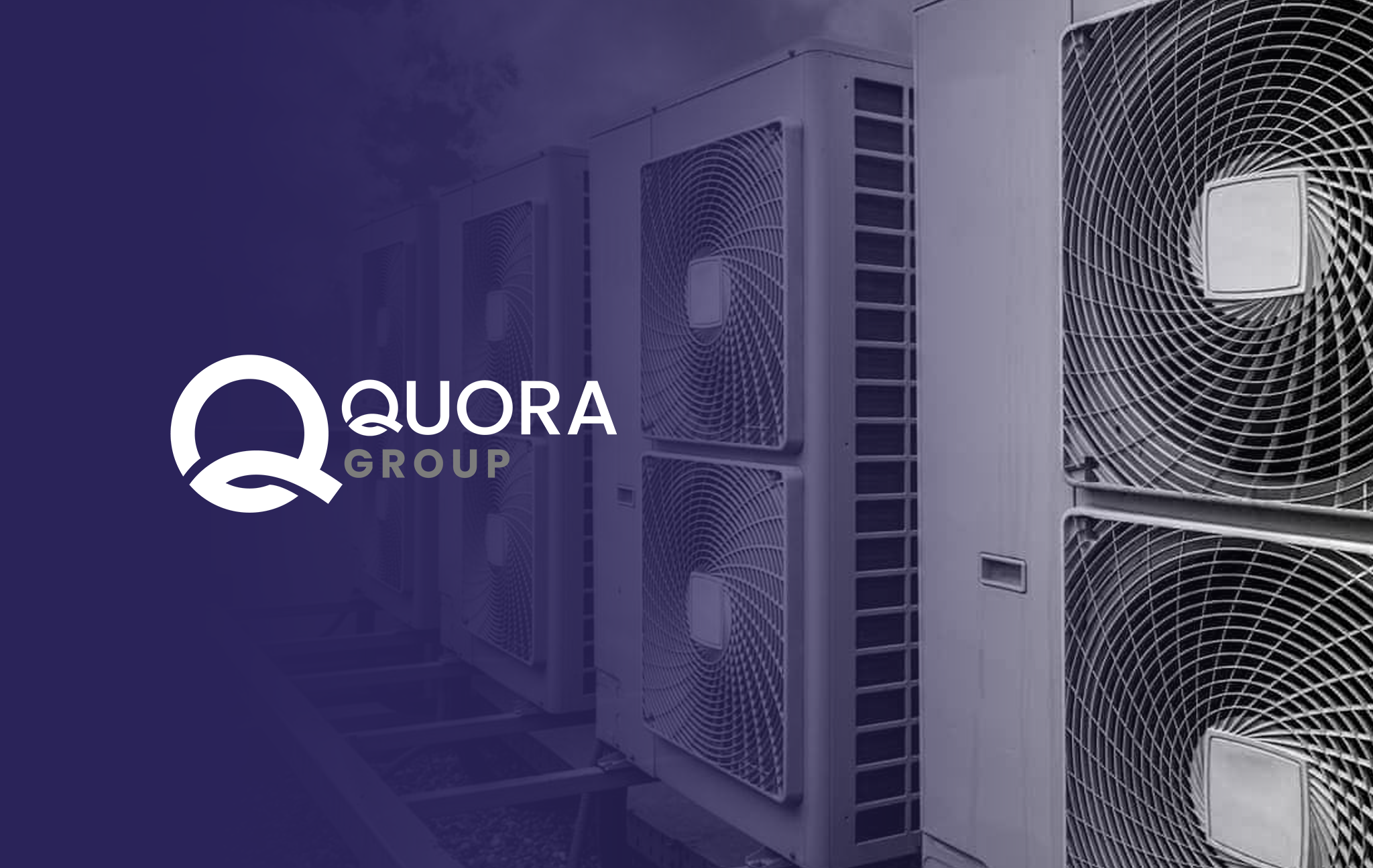As a mechanical and electrical building services provider with a speciality in gas installations, we’ve witnessed first-hand the rising popularity of heat pump technology as businesses across the country seek to decarbonise and decrease their energy bills.
In many of the more industry-focused sectors such as logistics, warehousing and manufacturing, simply keeping your premises powered and well-heated can be a costly challenge. As well as rising costs, business owners also have the added pressure from the UK government to decarbonise. Buildings in the UK are responsible for 23% of total carbon emissions and 30% of those emissions come from non-domestic buildings.
So how can you reduce your heating costs AND reduce your carbon footprint? Commercial heat pumps are one potential solution. Let’s take a look at how they work and why they may or may not suit your business.
What is a commercial heat pump?
Heat pumps are an alternative to gas boilers. They extract thermal energy from the air or ground and then convert it into heat, which is used for both hot water and heating. There are two common types of heat pump, air-source and ground-source. Both do the same thing, but they extract energy from different sources, as their names suggest.
How do commercial heat pumps work?
So how does this eco-friendly technology work? Let’s delve into the actual process used by the heat pump system to see how it converts renewable resources into heat.
Air-source heat pumps
Air-source pumps utilise refrigerant, which is turned from liquid to gas and then compressed back into a liquid again. The compression generates heat which is transferred through a heat exchanger, which warms up hot water cylinders that can be diverted to taps, showers, radiators and heaters. In many ways, air-source heat pumps are similar to air conditioning units in how they work – but unlike air conditioners which are solely air-to-air, they can supply heat to water.
Ground source heat pumps
Ground source heat pumps are a modern technology that sees a loop of piping buried outside your business. This piping is filled with water and antifreeze and the heat pump circulates the mixture through the system. As it does, the mixture absorbs heat which is used to transform refrigerant like it does in an air source system. This refrigerant is compressed and the released heat is transferred through a heat exchanger to create hot water.
Water source heat pumps
While they’re less common than both other forms of heat pump, we’ll quickly mention water source pumps. To have one, you’ll need a body of water near your premises. The system operates similarly to ground source but is limited by requiring a suitable pond, well or deeper water source nearby.
What are the benefits of a commercial heat pump?
Heat pumps bring plenty of benefits to your business, many of which we’ve already hinted at. The most obvious are:
- Cost-efficient heating: heat pumps are roughly 2-3 times more efficient than conventional gas boilers, meaning they can heavily reduce power demand for heating.
- Eco-friendly heating: heat pumps are far more environmentally friendly than other forms of commercial heating, cutting down on your carbon footprint considerably and helping you reduce your CO2 provided you use a renewable energy supplier. For some larger businesses who fall under Government schemes like ESOS (energy savings and opportunities scheme) or SECR (streamlined energy and carbon reporting), heat pumps can help you meet compliance requirements.
- No gas bill: You won’t need to pay for gas at all as part of your energy bill. Heat pumps run on electricity so you’ll only need to worry about power as part of your business energy bill.
- Easier maintenance: Heat pumps are generally easier to maintain than gas boilers and have lower servicing costs and maintenance fees. If you choose a heat pump supplied by our team at Quora Group, we can help support your commercial heat pump on an ongoing, cost-efficient basis to ensure you get the most from it.
- Dual purpose: Heat pumps can also be used to cool premises in hot weather, giving you more versatility for changing British weather.
What are the downsides to heat pumps?
The main issue associated with heat pump technology is the up-front cost and installation requirements. Air-source pumps are cheaper than ground-source pumps, with costs ranging from as low as £4,000-£8,000 for air source through to £35,000 for ground. Some businesses either don’t have the capital at hand to fund the pump, or the ability to disrupt their regular operations to allow for an intensive installation.
However, both of these challenges can be mitigated with the right support. Quora Group’s mechanical engineers can help you plan a system that meets your needs.
Will a heat pump help your business save money?
While the installation costs of a heat pump may be fairly steep, the efficiency gains make them worthwhile for most businesses that have the physical capacity to have one. Heat pumps, as previously mentioned, are 2-3 times more efficient than gas boilers.
Can my business have a heat pump?
If you’d like to increase your energy efficiency and decrease your costs, talk to Quora Group today. We’ll discuss your site, needs and current system and make recommendations designed to maximise your business’ energy mix.
